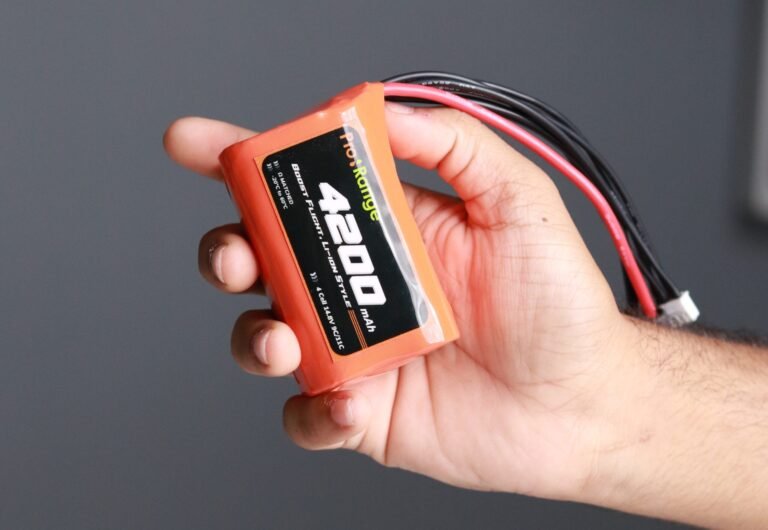The rise of blockchain technology has redefined how startups, enterprises, and innovators raise capital and engage global investors. Among the many blockchain standards, ERC20 has emerged as one of the most reliable protocols for developing secure, flexible, and interoperable tokens on the Ethereum blockchain. Launching a successful Initial Coin Offering (ICO) requires more than just creating a digital asset it demands compliance with regulatory frameworks, robust security, and efficient token distribution mechanisms. This is where ERC20 token development solutions play a crucial role, enabling businesses to launch campaigns that are both technically sound and legally compliant. By leveraging these solutions, organizations can streamline fundraising, build investor trust, and pave the way for sustainable growth in the blockchain ecosystem.
Importance of ERC20 Token Development in ICO Campaigns
When organizations plan an ICO, one of the first considerations is how the tokens will interact with wallets, exchanges, and platforms. ERC20 token standards simplify this process by creating a unified framework for token creation and transaction management. Instead of reinventing the wheel, projects can use a proven standard that enhances reliability and accessibility. This also lowers barriers for investors who expect smooth interoperability. Adopting ERC20 not only ensures compatibility but also helps establish trust, a factor that is central to attracting participants in fundraising campaigns.
-
Interoperability with Wallets and Exchanges
ERC20 tokens are supported by nearly all Ethereum wallets and exchanges, which simplifies investor participation and secondary market trading. This compatibility enhances accessibility, making it easier for token holders to manage and trade their assets. -
Streamlined Smart Contract Functions
With ERC20, developers can rely on predefined functions like transfer, balanceOf, and approve, reducing the complexity of coding and ensuring consistency across platforms. This structured framework accelerates development while maintaining security. -
Investor Confidence through Transparency
Adopting a recognized standard builds trust among investors, as they can easily verify token supply, transaction history, and ownership. Transparent operations are a cornerstone for attracting institutional participants to ICO campaigns.
Regulatory Compliance in ICO Token Development
For any ICO, compliance with legal frameworks is just as critical as technical innovation. Investors and regulators alike demand accountability, and tokens that fail to meet legal standards face significant challenges in adoption and legitimacy. ERC20 token development allows issuers to embed compliance-focused features directly into their tokens, making them better equipped to pass regulatory scrutiny. This approach not only safeguards the campaign against legal risks but also improves investor sentiment by showing a strong commitment to ethical fundraising practices and global financial standards.
-
Integration of KYC/AML Protocols
ERC20 token development solutions allow seamless integration of Know Your Customer (KYC) and Anti-Money Laundering (AML) checks. This ensures that only verified investors can participate, protecting the campaign from illicit activities. -
Adherence to Regional Legal Frameworks
Each jurisdiction has unique rules governing digital assets. By customizing tokens with compliance features, developers help issuers meet local requirements, reducing the risk of regulatory conflict. -
Auditable Smart Contracts
Implementing smart contracts with audit trails provides regulators and investors with verifiable records. This transparency fosters accountability and demonstrates a project’s commitment to ethical practices.
Security Features in ERC20 Token Development
A secure ICO campaign is the backbone of investor confidence, and projects that fail to implement security measures often face severe setbacks. ERC20 token development addresses these concerns by incorporating robust security protocols from the ground up. Tokens are designed to resist vulnerabilities, prevent unauthorized transactions, and safeguard funds during and after the ICO. Security considerations include smart contract testing, wallet protections, and continuous monitoring to counter evolving threats. By prioritizing safety, issuers reduce risks while creating a trustworthy environment for fundraising.
-
Robust Smart Contract Testing
Developers subject smart contracts to multiple rounds of testing, identifying and resolving potential loopholes before deployment. This reduces the likelihood of hacks or malfunctions during the ICO. -
Multi-Signature Wallet Integration
By enabling multi-signature transactions, ERC20 tokens provide additional protection against unauthorized fund transfers, ensuring that multiple parties must approve sensitive actions. -
Ongoing Monitoring and Upgrades
Security is not static—post-deployment monitoring and periodic updates keep tokens resistant to evolving threats, preserving investor confidence in the long term.
Customization and Utility of ERC20 Tokens
ICO projects often need tokens that go beyond basic functions, and ERC20 enables developers to design flexible tokens that match unique business goals. Whether for governance, access to services, or loyalty rewards, ERC20 tokens can be customized for versatile use cases. This makes them not just fundraising instruments but essential tools within a project’s ecosystem. By offering functionality beyond trading, ERC20 tokens add tangible value to investors and users, ensuring long-term engagement and adoption in the broader blockchain community.
-
Incentive Structures for Investors
Projects can program reward mechanisms into ERC20 tokens, offering bonuses, staking benefits, or loyalty programs that encourage long-term holding. -
Utility in Decentralized Ecosystems
Tokens can be designed to act as governance tools, grant access to services, or facilitate in-platform transactions, increasing their value beyond mere speculation. -
Flexible Supply Mechanisms
ERC20 token development solutions allow issuers to choose fixed or variable supply models, giving them control over token economics that align with project objectives.
Token Distribution Strategies for ICO Success
Even with strong security, compliance, and customization, an ICO cannot succeed without an effective token distribution model. A poorly managed distribution often leads to imbalance, price manipulation, or lack of investor trust. ERC20 tokens make it easier to implement fair allocation systems, ensuring transparency and equal opportunities for participants. By designing distribution mechanisms that include pre-sales, public sales, and lock-up periods, projects can create structured campaigns that align with both investor expectations and long-term sustainability.
-
Fair Allocation Methods
ERC20 tokens allow projects to design distribution systems that prevent concentration of ownership in a few wallets. This encourages decentralization and boosts investor confidence. -
Pre-Sale and Public Sale Management
Smart contracts can automate token allocation during pre-sales and public sales, ensuring transparency and preventing manual errors that could undermine credibility. -
Lock-Up and Vesting Schedules
Implementing vesting schedules ensures that project teams and early investors cannot offload tokens immediately. This stabilizes token value and demonstrates long-term commitment.
Conclusion
Launching a successful ICO requires more than issuing a token; it involves building a secure, compliant, and investor-friendly ecosystem. ERC20 has become the gold standard for token development, offering interoperability, security, and customization. By adopting professional ERC20 token development solutions, businesses can ensure that their fundraising campaigns are not only technologically advanced but also legally robust and transparent. This combination of innovation and compliance positions projects to attract global investors, foster trust, and achieve long-term success in the blockchain landscape.




